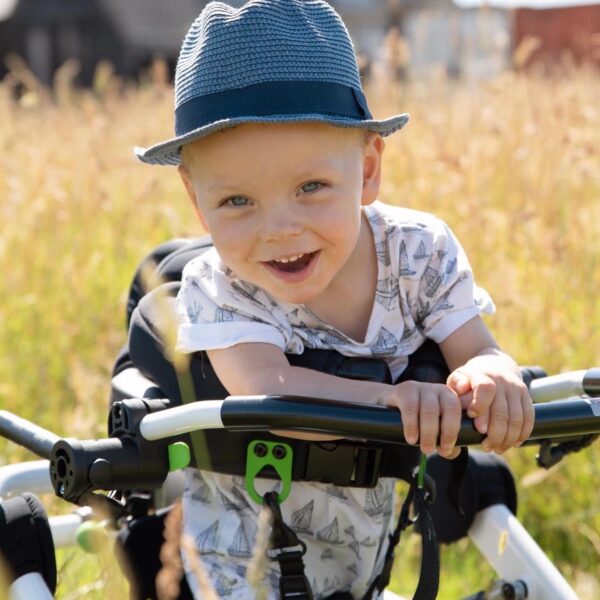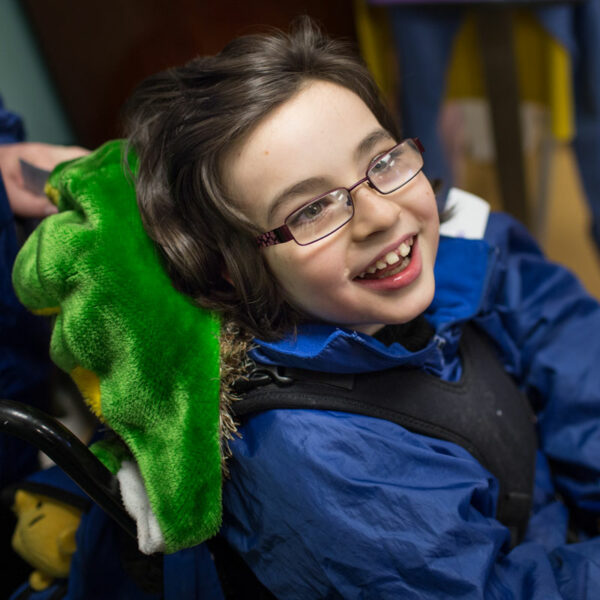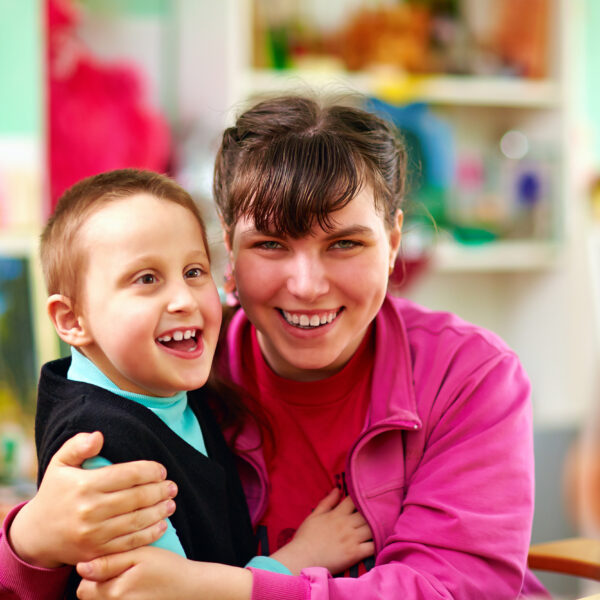Early years education
Support with SEND in nurseries and pre-schools
All mainstream nurseries, pre-schools and playgroups should have arrangements in place to identify and support young children with special educational needs and disabilities (SEND). They must do this according to the Early Years Foundation Stage (EYFS) framework.
If a child is identified as having a special educational need or disability, the early years setting will follow the SEND Code of Practice, in the same way that schools do. The Code of Practice sets out a ‘graduated approach’ of Assess, Plan, Do, Review to track how well any strategies or activities to support your child are working. Read more about the graduated approach in Extra SEN support in school.
The Early Years SENCO
Early education providers must have a member of staff who is a special educational needs coordinator (SENCO). The SENCO is responsible for the nursery or pre-school’s approach to identifying children with SEND, and giving them the right support to ensure they have the same opportunities to learn and develop as their peers.
Early years SENCOs advise and educate other staff in a nursery or pre-school about SEND. They should also inform parent carers if they suspect their child has SEND and closely involve them in any decision making about their child’s assessment or support.
The SENCO can also ask for additional advice and support from specialist SEND early years services that are run by your local authority. This might be an educational psychologist or early years specialist from your local specialist team:
Brighton & Hove Inclusion Support Service (BHISS) Early Years
Education East Sussex SEND Early Years Service
If you have any worries about your child’s development while they are at pre-school or nursery, speak to the SENCO.
Read the Department of Education’s information about the role of the Early Years’ SENCO.
Early years progress checks
Early years education providers should continually check and monitor the progress of the children in their care. They must share their feedback and insights with parent carers regularly, telling you how your child is doing with key skills such as communication and language, physical coordination or, later, literacy and maths.
Your child will also have regular developmental checks from their health visitor.
In early years settings, there is a more formal progress check between the ages of 2 and 3 and, from this, you will get a short summary of your child’s development which identifies their strengths, and any areas where their progress is less than expected. This is a key point at which the staff might identify your child has SEND if they haven’t already done so. If your child is identified as having additional needs, the SENCO should involve you in creating a plan to support their learning and planning regular reviews. Read more about getting a diagnosis.
Children starting in Reception in a mainstream school undergo a short assessment in maths, literacy and communication and language in the first six weeks they are at school. The Reception baseline assessment (RBA) is used as a tool to measure a child’s skills when they enter infant or primary school compared to the skills they have acquired by the time they reach Key Stage 2 in Year 6. Read the government’s information for parents on the Reception baseline assessment.
The assessment has been designed to be inclusive and accessible so that pupils with SEND can take part. It can be modified for children with visual or hearing impairments and other adaptations can be considered if needed. Occasionally, headteachers might consider the RBA inaccessible to a particular child, and they may not have to do it.
EHCPs for under 5s
Most under 5s with SEND do not need an Education, Health and Care Plan (EHCP) as their needs can be met from the resource available to their nursery or pre-school. If your child has a higher level of need, however, they may be referred for an EHC assessment. This can be done via the early years SENCO, health visitor, their GP or paediatrician, or you can make the referral. You may be asked to delay your request depending on your child’s month of birth but you are legally not obliged to wait.
The EHCP is a legal document that sets out the support your child should be getting. Under 5s with EHCPs will go through a different process when applying for primary or infant schools.
Read more about Choosing a School.
Read more about EHC assessments and plans.
Early years funding
All children are entitled to 15 hours free childcare/early education per week from the term after their third birthday until they start school. This 15 hours is available to children from 9 months old if one or both their parents are working or on maternity, paternity or shared parental leave. By September 2025, this entitlement will rise to 30 hours.
Some children are entitled to free early education/childcare from age two, regardless of whether their parents are working. This includes those who have an Education, Health and Care Plan (EHCP) or those in receipt of Disability Living Allowance (DLA). Read more about Childcare for children with SEND.
Nurseries and pre-school settings may also be able to access additional funding to help successfully include children with SEND in their setting. This is sometimes called Childcare Inclusion Funding or Access Funding. It can be used for extra staffing costs, to buy special equipment or make adaptations to the premises.
Read more about additional inclusion funding here:
Specialist nurseries
There are specialist nurseries or pre-schools that cater for children with more complex needs.
State-funded early years provision
In Brighton & Hove, the Jeanne Saunders Centre is a specialist assessment and intervention nursery which local children with more complex needs may attend in the year before they start school.
In East Sussex, there are a number of different specialist settings.
The early year’s department at South Downs School and Nursery in Eastbourne consists of a nursery and two reception classes, staffed by early years specialists who are very experienced in working with pre-school children with SEND. They also run regular Stay and Play events over the year to establish strong partnerships with parents and carers. More about South Downs Early Years
The Southfield Centre, located in Summerdown School in Eastbourne, provides bespoke facilities for children with complex medical and nursing needs. The centre can accommodate up to 51 pupils, ranging from 3 to 16 years, and offers nursery places to those who meet the criteria for support. In addition to a range of equipment and facilities in the nursery (hoists, hygiene suites, adjustable furniture), children at the Southfield Centre also have access to all the facilities at Summerdown School, which include a fully inclusive hydrotherapy pool and two sensory rooms. More about the Southfield Centre.
Glyne Gap Nursery, in Bexhill-on-Sea, is sited in purpose-built accommodation next to Glyne Gap school and Pebsham Primary Academy. Together, the nursery and school offer provision for pupils aged 2 to 19 with complex needs and autism. Find out more about Glyne Gap Nursery
Independent provision
Chailey Heritage School, near Lewes, has a pre-school class that caters for children with physical disabilities such as cerebral palsy, especially when combined with additional medical needs. Ingfield Manor School at Billingshurst in West Sussex has a pre-school and assessment service for children with physical disabilities and associated learning problems. The pre-school provides conductive education incorporating the early years’ curriculum.
The Children’s Respite Trust (who provide respite support for disabled children and their families across Sussex) runs Little Stars nursery provision in Uckfield for children aged two and over with SEND.
Be aware that if a specialist pre-school setting is outside your local area, the local authority would have to agree to pay for your child to go there, but this does sometimes happen for children with particularly specialist needs.
Other support for under 5s with SEND
Local Family Hubs (previously called Children’s Centres) may offer special groups or drop-in sessions for parents and children with additional needs.
There may be local parent-led support groups in your area for under fives with additional needs and their mums and dads. Read more about parent support groups.
You may also find charities that run educational groups for children with specific needs, e.g. Children’s Respite Trust in East Sussex and Whoopsadaisy in Brighton & Hove.
Ingfield Manor School in Billinghurst, West Sussex, also runs a free ‘School for Parents’ for families of young children with cerebral palsy and other motor learning difficulties. See School for Parents – Ingfield Manor School
For details of all these types of support for pre-school children with SEND, visit the Local Offer directory for your area:







